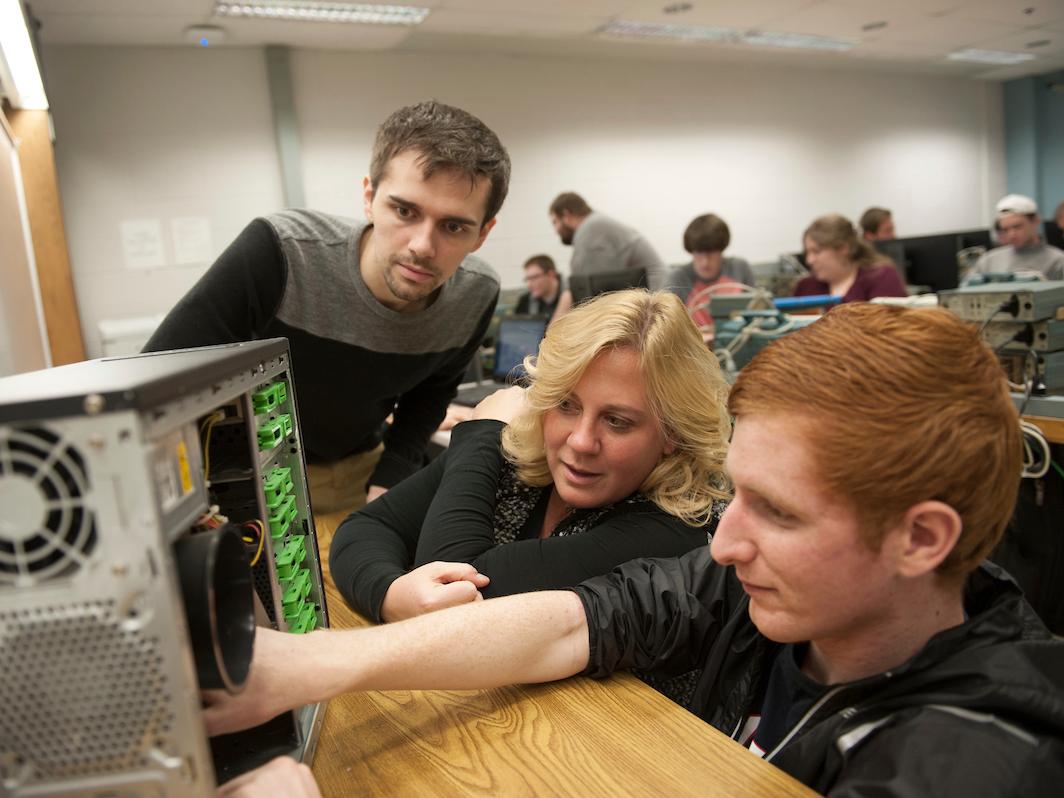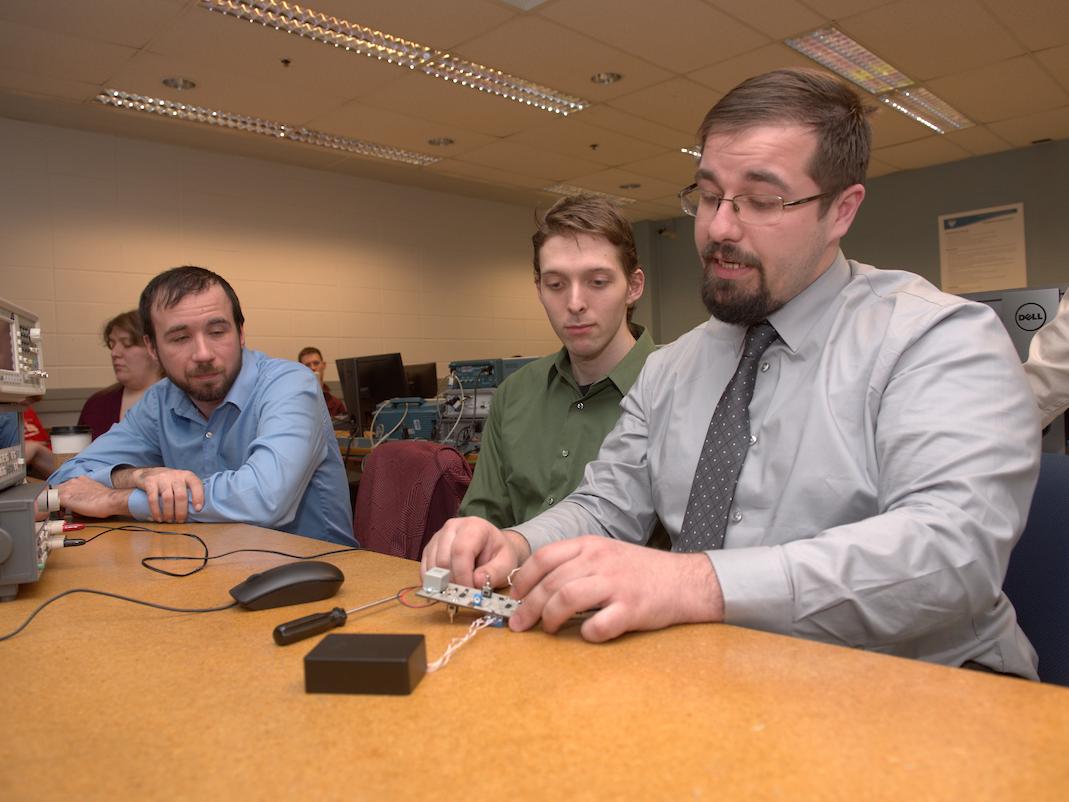
Polytechnic Programs
Tinkerers, builders, and experimenters—your curiosity can change the future.
Every new gadget began as an innovative idea, a fleeting curiosity that became a perpetual thought that begged to be brought to life. Big and small. Recreational to life changing. It all starts with that spark of curiosity.

Information Technology (B.S.)
Computers pretty much run our world, and we need passionate and innovate minds to understand them, keep them on track, and help them evolve. By majoring in information technology, you’ll be one of those minds as you develop an understanding of best practices, standards, and applications of information technologies. When you graduate, you’ll have the knowledge and practical hands-on expertise you need to support an organization’s information technology infrastructure, as well as the people who use it.

Program
Highlights
Program Highlights
- The ability to analyze and design information systems and enterprise IT infrastructures
- Experience with IT project management
- Support from the Mastodon community
- A prestigious Purdue degree
career and salary data
How far will you go?
General labor market and salary data are provided by Lightcast via O*NET and may not represent the outcomes experienced by Purdue Fort Wayne graduates in these programs. Purdue Fort Wayne graduates in these programs may earn salaries substantially different or less than the amounts listed. Salary and employment outcomes vary by geographic area, previous work experience, education, and opportunities for employment that are outside Purdue Fort Wayne’s control. Purdue Fort Wayne does not guarantee employment placement, salary level, or career advancement.
Student Learning Outcomes
Upon completion of this degree, students will be able to demonstrate the following learning outcomes:
-
Analyze a complex computing problem and apply principles of computing and other relevant disciplines to identify solutions
-
Design, implement, and evaluate a computing-based solution to meet a given set of computing requirements in the context of the program’s discipline
-
Communicate effectively in a variety of professional contexts
-
Recognize professional responsibilities and make informed judgments in computing practice based on legal and ethical principles
-
Function effectively as a member or leader of a team engaged in activities appropriate to the program’s discipline
-
Identify and analyze user needs and to take them into account in the selection, creation, integration, evaluation, and administration of
computing-based systems
- Computer System Security Analyst
- Database Administrator
- Data Communications Analyst
- Hardware or Software Support Specialist
- Help Desk Support Specialist
- IT Project Manager
- Network Analyst
- Programmer
- Software Designer
- Web Application Developer












